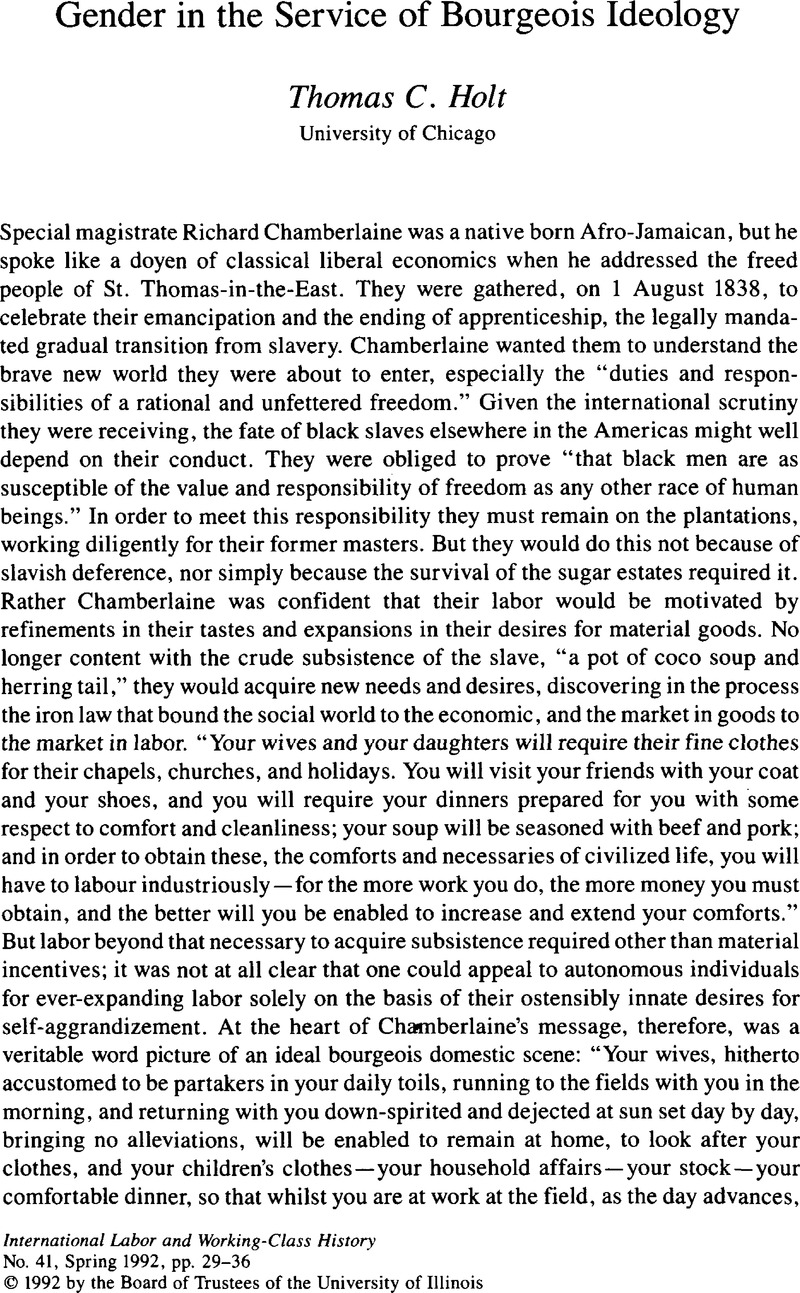Article contents
Gender in the service of Bourgeois Ideology
Published online by Cambridge University Press: 16 December 2008
Abstract

- Type
- Responses
- Information
- Copyright
- Copyright © International Labor and Working-Class History, Inc. 1992
References
Notes
Portions of this work have appeared earlier in The Problem of Freedom: Race, Labor, and Politics in Jamaica and Britain, 1832-1938, published by Johns Hopkins University Press. All rights reserved.
1. Morning Journal, 17 August 1838.
2. Holt, Thomas C., The Problem of Freedom: Race, Labor, and Politics in Jamaica and Britain,1832–1938 (Baltimore, 1991), 78Google Scholar.
3. For a discussion of these developments, see ibid., chaps. 2 and 5.
4. Ibid., chap. 5. See also Clarke, Edith, My Mother Who Fathered Me: A Study of the Family in Three Selected Communities in Jamaica (London, 1957), 65–78Google Scholar.
5. Besson, Jean, “Family Land as a Model for Martha Brae's New History: Culture Building in an Afro-Caribbean Village,” in Afro-Caribbean Villages in Historical Perspective, ed. Carnegie, Charles V. (Kingston, 1987), 100–132, quote on 104Google Scholar.
6. There was a glaring contradiction between this part of bourgeois ideology and the actual needs of the estates because slave women had constituted a large part of the plantation labor force. Thus their withdrawal into bourgeois domesticity was fiercely resisted and ridiculed by the planters.
7. Eyre, to Cardwell, , 6 August 1864, no. 234, Colonial Office 137/384, Public Record Office, Kew, EnglandGoogle Scholar.
8. Hill, to Smith, Lionel, 8 January 1837, in Great Britain, Parliamentary Papers, 1837 (521–I), 53:268–69Google Scholar.
9. See Drescher, Seymour, Capitalism and Antislavery: British Mobilization in Comparative Perspective (New York, 1986), chaps. 2 and 4CrossRefGoogle Scholar.
10. Hansard, 3rd Ser., House of Lords, (13 March 1866), 181:131, 133.
- 1
- Cited by




